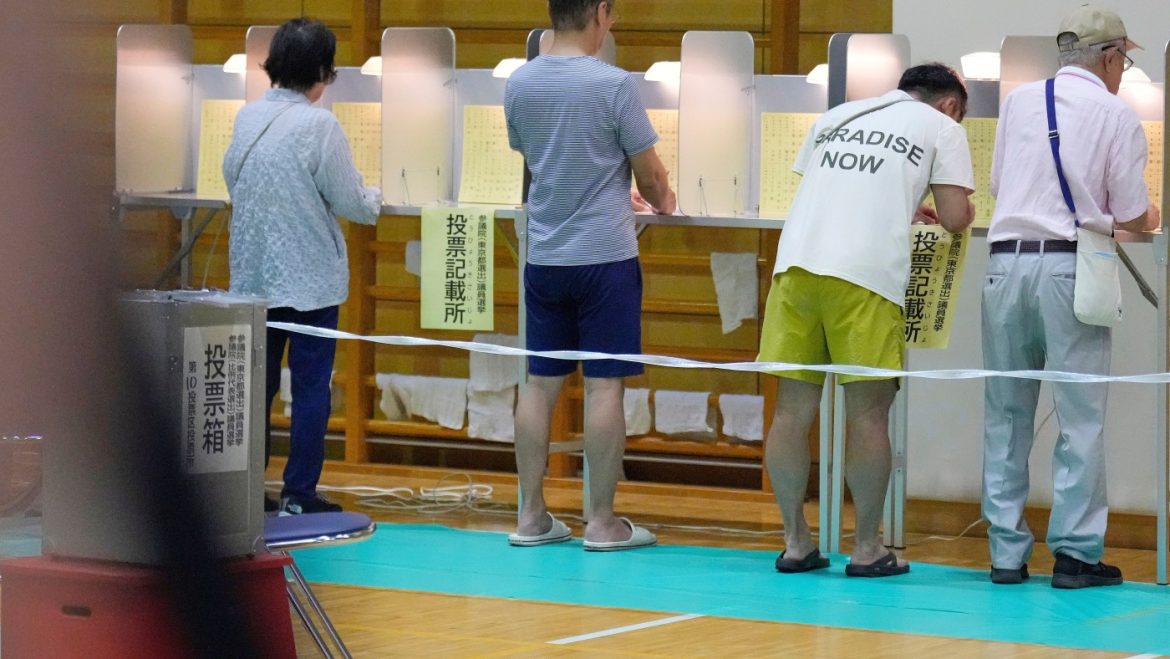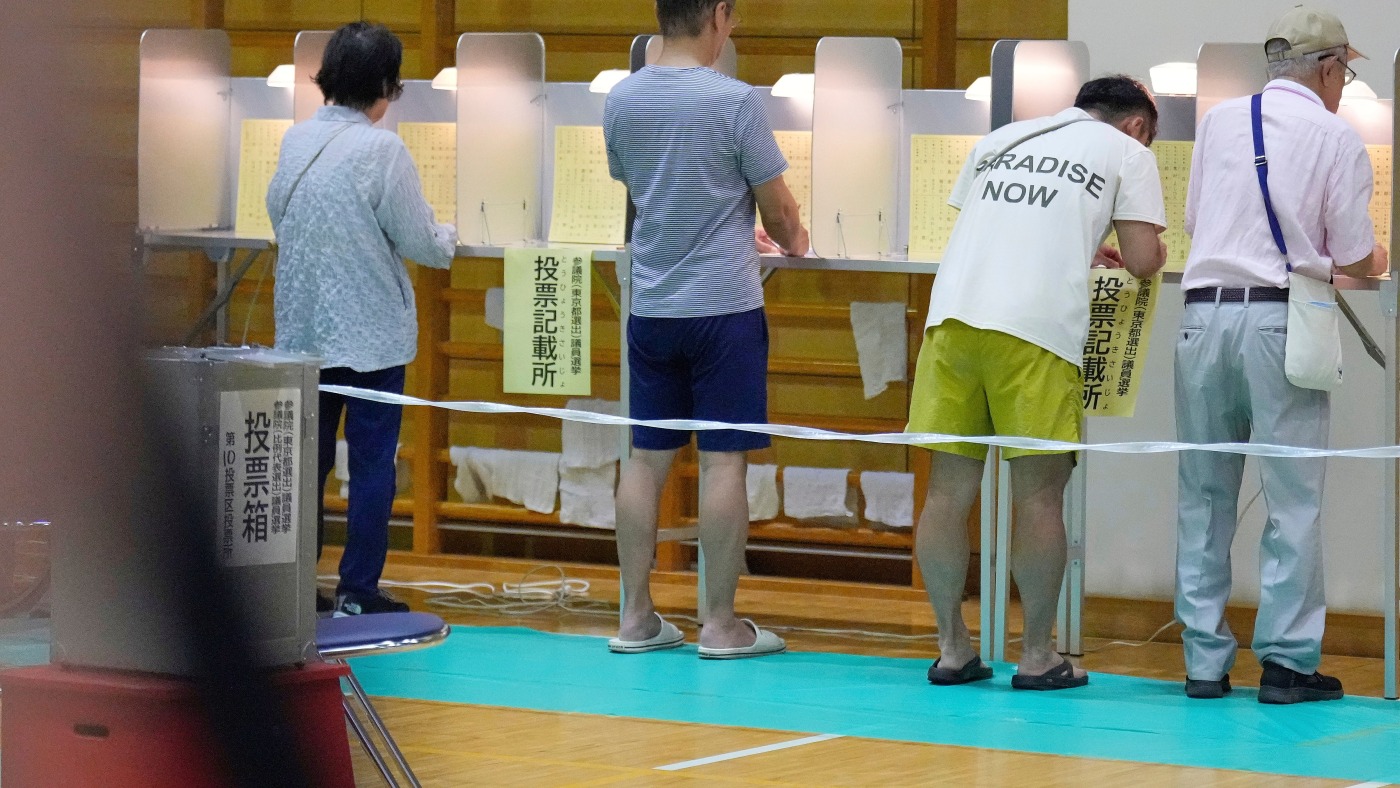The Ishiba Test: Analyzing Japan’s Upper House Election
A Nation at the Crossroads: The Stakes of the Election
Japan’s recent upper house election was more than a routine political exercise; it was a critical referendum on Prime Minister Shigeru Ishiba’s leadership and policies. The election results have sent shockwaves through the political establishment, reflecting deep-seated public dissatisfaction with the government’s handling of economic and social issues. The outcome has significant implications for Japan’s political stability, economic trajectory, and international relations.
The election was a litmus test for Ishiba’s administration, which has been grappling with a range of challenges since he took office ten months ago. The key issues that dominated the election campaign were economic concerns, trade tensions, immigration, and political scandals. These issues resonated deeply with voters, who expressed their frustration and anxiety at the ballot box.
Economic Concerns: The Pinch of Inflation
One of the most pressing concerns for voters was the rising cost of living. Inflation has been eroding the purchasing power of ordinary Japanese citizens, making it difficult for them to make ends meet. Despite the government’s efforts to stimulate economic growth, many voters felt that the benefits of economic policies were not trickling down to them. The stagnation of wages and the increasing burden of social security payments further exacerbated the economic anxiety among the electorate.
Trade Tensions: The Looming Threat of US Tariffs
Another significant factor that influenced the election was the looming threat of US tariffs. Japan’s economy is heavily dependent on exports, and the prospect of trade restrictions from its largest trading partner has raised concerns about the country’s economic future. Voters were wary of the potential impact of tariffs on Japan’s economy and its relationship with the United States. The government’s handling of this issue was a key point of contention in the election campaign.
Immigration: A Surge in Right-Wing Populism
The election also highlighted the growing debate over immigration policies in Japan. A surge in right-wing populist sentiment has fueled calls for stricter measures targeting foreign residents and visitors. This issue has exposed deep divisions within Japanese society, with some advocating for a more open and inclusive approach to immigration, while others prioritize national security and cultural preservation. The government’s stance on immigration was a contentious issue that polarized the electorate.
Political Scandals: Erosion of Public Trust
Lingering financial scandals involving the ruling party further eroded public trust in the government. Voters expressed outrage over corruption and demanded greater accountability from their leaders. The government’s handling of these scandals was a significant factor that influenced the election outcome. The perception of a disconnect between the government and the people undermined Ishiba’s efforts to build confidence and support for his administration.
Ishiba’s Challenges: A Wobbly Foundation
Prime Minister Shigeru Ishiba inherited a nation grappling with deep-seated challenges. His administration faced significant headwinds, including erosion of public trust, economic stagnation, social divisions, and a loss of the lower house majority. These challenges made it difficult for Ishiba to implement his vision of reform and renewal.
Erosion of Public Trust: A Legacy of Scandals
The legacy of previous scandals and a perceived disconnect between the government and the people undermined Ishiba’s efforts to build confidence. The public’s trust in the government was already fragile, and the recent scandals further eroded this trust. The government’s handling of these scandals was a significant factor that influenced the election outcome.
Economic Stagnation: The Burden of Slow Growth
Years of slow growth and deflation created a sense of pessimism among the Japanese people. Ishiba’s economic policies were under pressure to deliver tangible results quickly. The government’s inability to address the economic stagnation and provide relief to struggling households was a significant factor that influenced the election outcome.
Social Divisions: Bridging the Gaps
Debates over immigration, social security, and other issues exposed deep divisions within Japanese society. Ishiba needed to bridge these gaps to forge a national consensus. The government’s handling of these issues was a significant factor that influenced the election outcome.
Loss of Lower House Majority: A Weakened Position
Prior to the upper house election, Ishiba’s coalition had already lost its majority in the more powerful lower house. This weakened his position and made him vulnerable to no-confidence motions. The loss of the lower house majority was a significant factor that influenced the election outcome.
The Election’s Impact: Instability and Uncertainty
The election results sent shockwaves through Japan’s political system. The ruling coalition suffered losses in the upper house, failing to secure a clear majority. This outcome reflected widespread voter dissatisfaction with the government’s performance. The setback weakened Ishiba’s grip on power and raised questions about his future as Prime Minister. The possibility of a leadership challenge or a snap election loomed large.
Increased Political Instability: A Leadership Crisis
The election results have ushered in a period of heightened political uncertainty. The loss of the upper house majority has weakened Ishiba’s position and raised questions about his leadership. The possibility of a leadership challenge or a snap election has created a sense of instability in the political system.
Policy Gridlock: The Challenge of Governance
With a divided parliament, enacting meaningful reforms would become even more difficult. Policy gridlock could hinder Japan’s ability to address its economic and social challenges effectively. The government’s inability to implement its agenda could further erode public trust and support.
Rise of Opposition Forces: A Shift in the Political Landscape
The election results may embolden opposition parties, creating new opportunities to challenge the ruling coalition and advance alternative policy agendas. The rise of opposition forces could lead to a shift in the political landscape, with new parties and leaders emerging to fill the void.
A Divided Nation: Implications for the Future
The implications of this election extend far beyond the immediate political fallout. They reflect deeper trends and fault lines within Japanese society. The election results underscore the urgency of addressing economic inequality and providing greater security for struggling households. Japan needs to find ways to bridge social divisions and foster a more inclusive society. This requires open dialogue, compromise, and a commitment to addressing the concerns of all citizens.
Economic Anxiety: The Need for Reform
The election outcome underscores the urgency of addressing economic inequality and providing greater security for struggling households. The government needs to implement policies that stimulate economic growth, create jobs, and improve the standard of living for all citizens. The election results have sent a clear message that the status quo is no longer acceptable.
Social Cohesion: Bridging the Divide
Japan needs to find ways to bridge social divisions and foster a more inclusive society. This requires open dialogue, compromise, and a commitment to addressing the concerns of all citizens. The government needs to promote social cohesion and ensure that all citizens feel valued and represented.
Political Reform: Restoring Public Trust
The election results highlight the need for greater transparency, accountability, and responsiveness in government. Reforms are needed to restore public trust and ensure that the political system serves the interests of the people. The government needs to implement measures that promote good governance, prevent corruption, and ensure that the political system is fair and transparent.
International Relations: Navigating a Complex World
Japan’s ability to navigate complex international relations will be crucial in the years ahead. This requires strong leadership, strategic thinking, and a commitment to multilateral cooperation. The government needs to promote Japan’s interests on the global stage and ensure that the country plays a constructive role in international affairs.
Charting a New Course for Japan
The upper house election has delivered a stark message: Japan is at a crossroads. The path forward requires bold leadership, innovative solutions, and a renewed commitment to addressing the challenges facing the nation. The next chapter in Japan’s story remains unwritten, but it will be shaped by the choices made in the aftermath of this pivotal election.
The election results have sent a clear message to the government that the people are demanding change. The government needs to listen to the concerns of the people and implement policies that address their needs. The election results have also highlighted the need for political reform, social cohesion, and economic reform. The government needs to take bold steps to address these challenges and chart a new course for Japan.
The future of Japan depends on the choices made in the aftermath of this election. The government needs to rise to the challenge and implement policies that promote economic growth, social cohesion, and good governance. The people of Japan are counting on their leaders to chart a new course for the nation and ensure a prosperous and secure future for all citizens.


